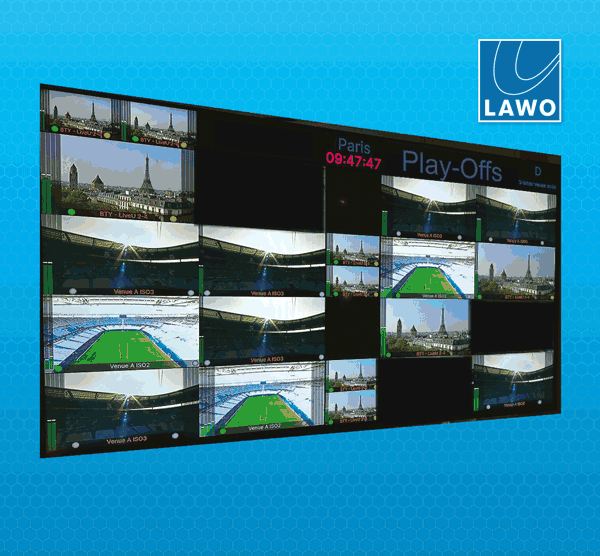Tokyo 1964: The first modern Olympics

Posted on Oct 28, 2021 by Verity Butler
The Tokyo 1964 Olympics featured even more media magic than this year’s version
The Olympic Games have always been a wonderful opportunity to showcase what broadcast can do. At Tokyo 2020, Olympic Broadcasting Services (OBS) pulled off amazing feats – putting on one of the world’s most complex events in the middle of a pandemic, alongside rights holders broadcasting remotely to an unprecedented degree.
But this pales in comparison to the media achievements of 1964 – the last time the Olympics was hosted in Tokyo. Held in October, the sporting extravaganza was a first for Asia (Japan had been scheduled to host the 1940 Games, but it was decided the country’s 1937 invasion of China wasn’t in the Olympic spirit). It was also the first Olympics to be broadcast live around the world.
Previous live footage had been restricted to national or continental level. The 1956 Winter Games were the first broadcast internationally across several west-European countries, relayed via the Eurovision network. But most ‘near live’ broadcasting involved flying tapes transferred at the site overnight – ready for broadcast the next day.
Tokyo 1964 transmitted live coverage to the Hughes Corporation’s Syncom 3 – the world’s first geostationary communications satellite – whichwas then picked up by the European Relay 1 satellite.
Syncom (synchronous communication satellite) started as a 1961 Nasa programme, in partnership with Hughes Aircraft Company. Syncom 3 was launched in August 1964, two months before the Games, on a Delta D rocket from pad 17A at Cape Canaveral.
The live Olympics coverage had been part of Syncom’s mission plan from the beginning – a Cold War flex to show the world the global reach of American satellite and communications tech. The satellite carried a 10 Mc bandwidth channel for television tests, with a 50 kc option for small station testing. Syncom 3 also carried the first communications through an orbiting satellite to a commercial airliner in flight.

Apps for this summer’s Olympics featured every single sport. The live coverage from Tokyo 1964 totalled 5hrs 41mins in the US, 12hrs 27mins in Europe, and 14hrs 18mins in Canada. Still images were also transmitted to the US, Canada and 21 European countries.
On 1 January 1965, Nasa handed over operation of the satellite to the US Department of Defense.
One of the greatest sports films of all time
Another media milestone that came out of Tokyo 1964 was the sports documentary Tokyo Olympiad, directed by Kon Ichikawa, also responsible for the Oscar-nominated The Burmese Harp. The Japanese government initially went to cinematic legend Akira Kurosawa. But in order to take the directing job, Kurosawa also wanted control of the opening and closing ceremonies. Ichikawa was easier to work with.

Tokyo Olympiad is widely considered one of the greatest sports films of all time. But the financiers were disappointed. They had wanted a straightforward recording of the events and competition, and mandated a recut. Ichikawa gave them a film which instead captured the atmosphere, its spectators, behind-the-scenes moments, and the psychological states of the athletes. Until Hayao Miyazaki’s Spirited Away, Tokyo Olympiad was the highest grossing Japanese film of all time.
In 2019, the IOC made the full-length, digitally restored version available free on its website.
Watch it here (be sure to turn on the appropriate subtitles)

Tokyo 1964 facts
- Last Olympics that West Germany and East Germany competed at as a United Team.
- The Olympic flame was lit by Yoshinori Sakai, born in Hiroshima on 6 August 1945, the day the US dropped an atomic bomb on the city
- Last Olympics to use a cinder track.
- First Olympics to refuse participation by South Africa for its apartheid policy.
- In 1964, the top-three places in the final medal table were held by the US, the Soviet Union and Japan. In 2021, it was the US, China and Japan.
This article first featured in the Autumn 2021 issue of FEED magazine.











